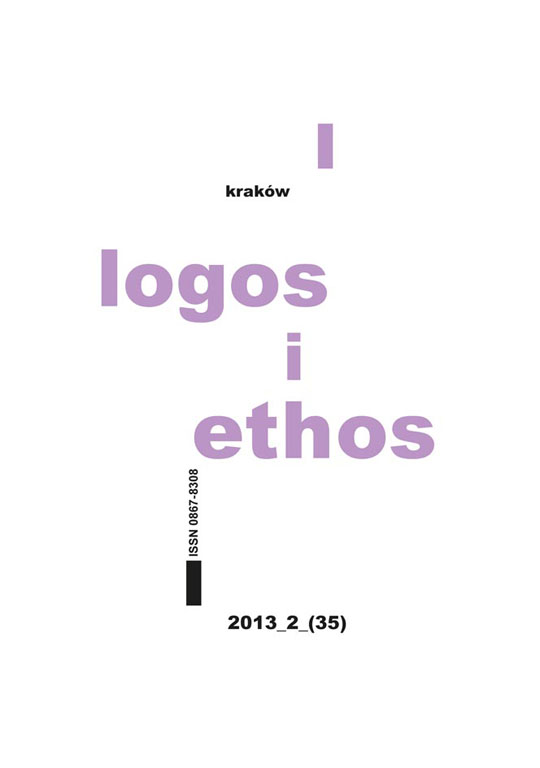Die Ökologie der Person – Kantische Motive des Personbegriffs in Karol Wojtyłas Person und Tat
DOI:
https://doi.org/10.15633/lie.161Słowa kluczowe:
ecology of man, person, liberty, loveAbstrakt
Apart from many legitimate concerns about ecology, the most important contemporary concern should be of anthropological nature and must address the human being as a person (Benedikt XVI). What is man? Are human beings free? What should human beings do? These Kantian questions also describe the main starting points of Karol Wojtyła’s philosophy in The Acting Person.
With regard to the importance of the question (ecology of man) our challenge is divided into three parts. First, man is a person; second, his call is to liberty and last, responsible love is an emanation of personal dignity. In this manner the three important points in Wojtyła’s philosophy (person, liberty, love) are well characterized. The essence of man is his personal dignity as a source for the possibility of free (responsible) decisions – “the act”. The experience of morality is included in the experience of being a person. Wojtyła poses the question “how do I understand who I am throughout my acts?” Like Kant, the author emphasizes the importance of free will, conscientiousness as an obligation, which speaks to the conscious person. I determine myself through my own decision (person´s actions). For Wojtyła, participation in love is the basis of all human personal experiences. “Only persons participate in love”. Participation in the character of the other becomes – in the language of Wojtyła – “the choice of the other person in myself ”.
Pobrania
Opublikowane
Numer
Dział
Licencja
Prawa autorskie (c) 2013 Zbigniew Waleszczuk

Utwór dostępny jest na licencji Creative Commons Uznanie autorstwa 4.0 Międzynarodowe.
W kwestii praw autorskich obowiązują następujące zasady:
1. Twórca oświadcza, że służą mu prawa autorskie do utworu i że nie są ograniczone w zakresie objętym niniejszym oświadczeniem oraz że utwór jest dziełem oryginalnym i nie narusza praw autorskich innych osób.
2. Twórca zezwala Uniwersytetowi Papieskiemu Jana Pawła II w Krakowie na nieodpłatne, niewyłączne i nieograniczone w czasie korzystanie z utworu, to jest:
- utrwalanie i zwielokrotnianie: wytwarzanie egzemplarzy utworu techniką drukarską, reprograficzną, zapisu magnetycznego oraz techniką cyfrową;
- obrotu oryginałem albo egzemplarzami, na których utwór utrwalono (wprowadzanie do obrotu, użyczenie lub najem oryginału albo egzemplarzy, publiczne wystawienie, wyświetlenie, a także publiczne udostępnianie utworu w taki sposób, aby każdy mógł mieć do niego dostęp w miejscu i w czasie przez siebie wybranym);
- włączenie utworu w skład utworu zbiorowego;
- udzielanie przez Uniwersytet Papieski Jana Pawła II w Krakowie sublicencji Creative Commons Uznanie autorstwa 4.0 Międzynarodowe (CC BY 4.0)
3. Uniwersytet Papieski Jana Pawła II w Krakowie udostępnia utwór na Platformie Czasopism należącej do uczelni, na licencji Creative Commons Uznanie autorstwa 4.0 Międzynarodowe (CC BY 4.0). Tym samym uprawnia wszystkich zainteresowanych do korzystania z utworu pod następującymi warunkami:
- zostanie podany autor i tytuł utworu,
- zostanie podane miejsce publikacji (tytuł czasopisma i adres internetowy do oryginalnie opublikowanego utworu).

